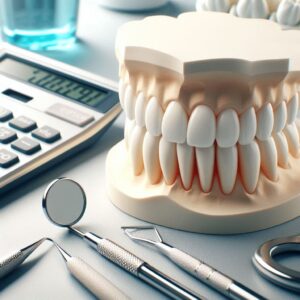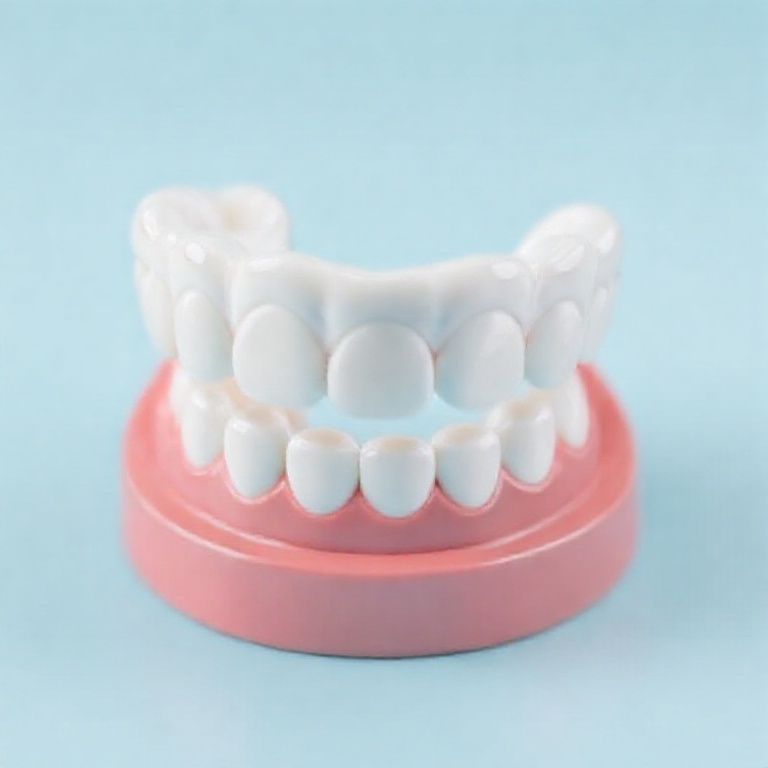Porcelain Dental Bridge Cost: Factors, Comparisons, and Affordable Options
A missing tooth can affect more than just your smile—it can impact your confidence, speech, and even your ability to chew properly. Porcelain dental bridges offer a durable and aesthetically pleasing solution, but many patients hesitate due to uncertainty about costs.

Whether you’re considering a bridge for functional or cosmetic reasons, this article will help you make an informed decision.
2. What Is a Porcelain Dental Bridge?
A porcelain dental bridge is a fixed prosthetic device used to replace one or more missing teeth. It consists of artificial teeth (pontics) anchored by dental crowns on adjacent natural teeth or implants. Porcelain is a popular choice because it mimics the natural translucency and shine of real teeth.
3. Types of Porcelain Dental Bridges
– Traditional Bridges
The most common type, involving two crowns on adjacent teeth with a pontic in between.
– Cantilever Bridges
Used when only one adjacent tooth is available for support.
– Maryland Bridges
A conservative option that uses a metal or porcelain framework bonded to the back of adjacent teeth.
– Implant-Supported Bridges
The most stable and long-lasting option, secured by dental implants instead of natural teeth.
4. Benefits of Porcelain Dental Bridges
-
Natural Appearance – Blends seamlessly with real teeth.
-
Durability – Lasts 10-15 years with proper care.
-
Stain Resistance – Less prone to discoloration compared to resin.
-
Improved Functionality – Restores chewing and speaking ability.
5. Factors Affecting Porcelain Dental Bridge Cost
| Factor | Impact on Cost |
|---|---|
| Material Quality | High-grade porcelain costs more. |
| Number of Teeth | More missing teeth = higher cost. |
| Dentist’s Experience | Specialists charge more. |
| Geographic Location | Urban areas have higher prices. |
| Additional Procedures | Extractions, implants, or gum treatments add cost. |
6. Average Cost Breakdown
-
Traditional Porcelain Bridge: $2,000 – $5,000 per unit
-
Maryland Bridge: $1,500 – $2,500
-
Implant-Supported Bridge: $5,000 – $15,000 (per implant)
*Dental insurance may cover 50-70% of the cost.*
7. Porcelain vs. Other Materials
-
Porcelain vs. Metal: Porcelain looks more natural but is less durable.
-
Porcelain vs. Zirconia: Zirconia is stronger but more expensive.
-
Porcelain vs. Composite Resin: Resin is cheaper but stains easily.
8. How to Save Money
-
Dental Schools – Lower-cost treatment from supervised students.
-
Dental Tourism – Countries like Mexico and Thailand offer savings.
-
Insurance & Financing – Many clinics offer payment plans.
9. The Procedure: What to Expect
-
Consultation – X-rays and impressions are taken.
-
Tooth Preparation – Adjacent teeth are shaped for crowns.
-
Temporary Bridge – Worn while the permanent one is crafted.
-
Final Placement – The custom bridge is cemented in place.
10. Potential Risks & Complications
-
Tooth sensitivity
-
Gum irritation
-
Bridge loosening over time
11. Longevity & Maintenance
-
Brush and floss daily.
-
Avoid hard foods.
-
Regular dental check-ups.
12. Alternatives to Porcelain Bridges
-
Dental Implants – More expensive but longer-lasting.
-
Removable Partial Dentures – Cheaper but less stable.
13. Conclusion
Porcelain dental bridges offer a balance of aesthetics, functionality, and affordability. Costs vary based on materials, location, and dentist expertise, but financing options can make them accessible. Proper care ensures longevity, making them a worthwhile investment for restoring your smile.
14. FAQs
Q: How long does a porcelain bridge last?
A: 10-15 years with proper care.
Q: Does insurance cover porcelain bridges?
A: Most plans cover 50-70%, but check your policy.
Q: Can a porcelain bridge be repaired?
A: Yes, minor cracks can often be fixed, but severe damage may require replacement.


